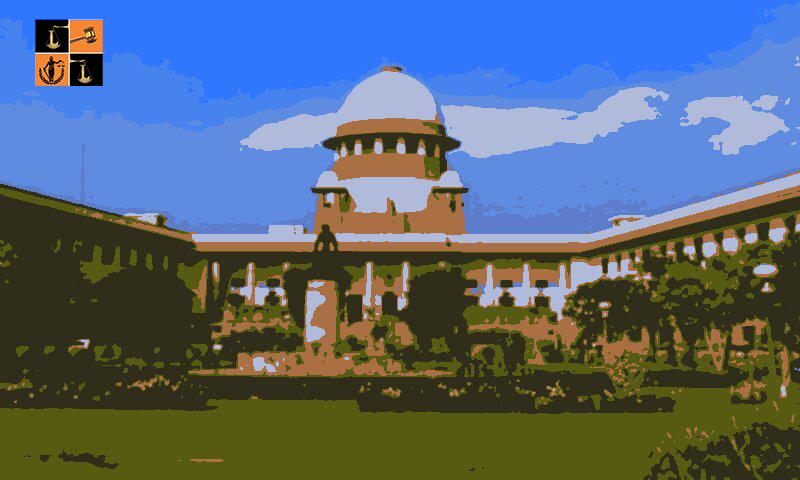The Supreme Court on 26th March,2021 comprising of a bench of Justices Sanjay Kishan Kaul and R. Subhash Reddy while dismissing the appeal filed by murder accused against the Judgment of Karnataka High Court which had reversed their acquittal by the Trial Court reiterated that only contradictions in material particulars and not minor contradictions can be a ground to discredit the testimony of the witnesses. (Rajendra @ Rajappa vs State of Karnataka)
Facts of the case
The appeal filed by the accused persons in a murder case of a coolie. The trial Court had acquitted them in the case but the High Court had revered the order of acquittal. All the accused were Chargesheeted by the Sessions court under sections 143, 147, 148, 324, 326, 307, 302 read with 149 of the Indian Penal Code. But the accused were acquitted by the Sessions Court.
On the appeal by the state of Karnataka, the High Court had reversed the order of acquittal and convicted the accused for offences under 143, 148, 149, 324, 326, & 302 r/w 149 IPC and sentenced to life-imprisonment. Hence the Present appeal.
Contention of the Parties
Ms. Kiran Suri, learned senior counsel appearing for the appellants accused has submitted that the trial court, by considering the entire evidence on record and by noticing the material discrepancies in the evidence on record, has rightly held that the prosecution has not proved the guilt of the accused beyond reasonable doubt. It was submitted by learned counsel that the view taken by the trial court was a possible view. In that view of the matter, the High Court committed error in reversing the well reasoned judgment of the trial court. The learned counsel has placed reliance on a judgment of this Court in the case of Shivaji Sahabrao Bobade & Anr. v. State of Maharashtra wherein this Court has considered the scope of appeal against acquittal under Code of Criminal Procedure 1898.
Lastly, it was submitted that in any event it is not a case for conviction under Section 302 IPC as there was no intention to kill the deceased, and if her submissions are not accepted on merits of the matter, she made a request to modify the conviction to one under Section 304II, IPC.
On the other hand, learned counsel appearing for the State of Karnataka, by taking the court to the various findings recorded by the trial court as well as the High Court, has submitted that the findings in support of acquittal recorded by the trial court are perverse and erroneous. It is always open for the appellate court to reappreciate the evidence and reverse such findings.
It was contended by learned counsel, though PWs1 to 3 are rustic villagers and when deposing after a long lapse of time from the date of incident, the minor discrepancies will occur and same is no ground to discard their evidence. It was submitted that the evidence of PWs1 to 3 is trustworthy and natural. Inspite of the same, by misconstruing the evidence, the trial court discarded their testimony only on the ground that all are interested witnesses as they are related. It was submitted that even the accused was related to PWs1 to 3 and merely because they are related, same is no ground to discard their evidence.
By referring to the various findings recorded by the High Court, learned counsel has submitted that the findings recorded in support of conviction by the High Court are in conformity with the evidence on record, as such there are no grounds to interfere with the same.
It was submitted that in view of the common object shared by the accused to commit murder of the deceased there are no grounds to interfere with the conviction recorded under Section 302 read with 149 IPC etc., as recorded by the High Court.
Courts Observation & Judgment
The bench, referring to the evidence on record, observed “If the depositions of PW1 to PW3 are considered along with the documentary evidence on record and medical evidence of PWs10 and 14, it is crystal clear that their evidence is natural, trustworthy and acceptable.The trial court has disbelieved their testimony by referring to some minor contradictions.”
The court noted that, the witnesses are rustic villagers and incident happened when they were returning to their house after attending the coolie work.
The bench added, "This Court, in the case of Narayan Chetanram Chaudhary & Anr. v. State of Maharashtra, has considered the minor contradictions in the testimony, while appreciating the evidence in criminal trial. It is held in the said judgment that only contradictions in material particulars and not minor contradictions can be a ground to discredit the testimony of the witnesses."
In Narayan Chetanram Chaudhary, it was observed thus: Only such omissions which amount to contradiction in material particulars can be used to discredit the testimony of the witness. The omission in the police statement by itself would not necessarily render the testimony of witness unreliable. When the version given by the witness in the court is different in material particulars from that disclosed in his earlier statements, the case of the prosecution becomes doubtful and not otherwise. Minor contradictions are bound to appear in the statements of truthful witnesses as memory sometimes plays false and the sense of observation differ from person to person.
The court therefore dismissed the appeal observing that as the view taken by the trial court was not at all a possible view and the findings run contrary to the evidence on record, the High Court has rightly reversed the judgment of the trial court by convicting the accused.
Read Judgment @Latestlaws.com
Share this Document :Picture Source :


























